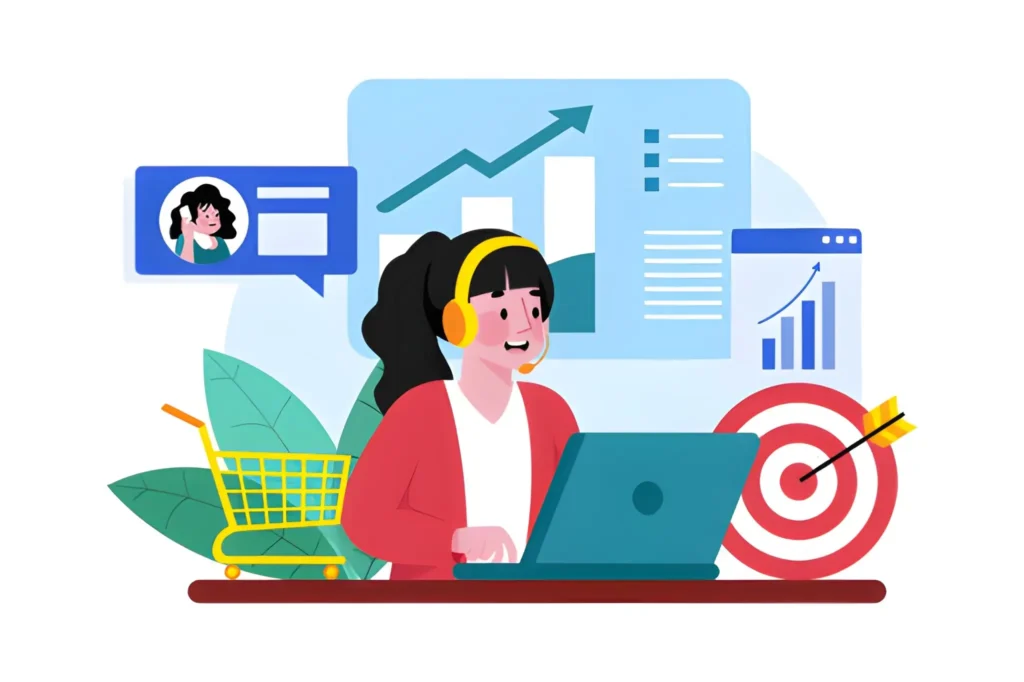For e-commerce companies chasing exponential growth, the back end often fractures before the front end does. A successful marketing campaign or a viral product launch can immediately overwhelm existing infrastructure, transforming a moment of victory into an operational nightmare.
Main Statements:
- Rapid e-commerce growth frequently overwhelms back-end operations first.
- Scaling customer experience (CX) is a complex challenge, exceeding simple staffing increases.
- Maintaining brand quality, consistency, and specialized knowledge with new CX hires is difficult under pressure.
- High-growth brands should view customer support as a scalable, external engine crucial for retention and reputation.
- Partnering with specialized external CX providers is a strategic necessity for sustainable growth.
While scaling warehousing and fulfillment presents obvious capital hurdles, the challenge of scaling customer experience (CX) is more insidious. It’s not just about hiring more people; it’s about maintaining brand quality, conversational consistency, and specialized knowledge across dozens of new hires, often in compressed timeframes.
This is where high-growth brands must look beyond internal capacity, treating customer support not as an overhead but as a scalable engine that directly impacts retention and reputation. A pivot toward specialized external partnership becomes less a choice and more a strategic necessity for sustainable acceleration.
The Operational Imperative: Why E-commerce Teams Choose External Partners
When a digital company hits its stride, the internal support team rapidly becomes a bottleneck, often drowning in volume that distracts them from focusing on strategic, high-value tasks. The most immediate and effective remedy is ecommerce call center outsourcing. By leveraging a partnership model, businesses gain access to an elastic workforce capable of absorbing massive volume spikes instantly, a capability virtually impossible to build in-house efficiently. This strategic move fundamentally shifts the CX function from a fixed-cost liability—where resources sit idle during slow periods—to a variable-cost asset, scaling in perfect lockstep with demand. Furthermore, outsourcing grants immediate access to global facilities, enabling 24/7 coverage across multiple time zones. This ensures customers receive timely, expert support regardless of where they are or when they shop, transforming a foundational operational challenge into a seamless, high-performance capability that fuels market expansion.
Leveraging Specialized Skills for High-Value Interactions
As e-commerce transactions grow in complexity—involving regulatory nuances, high-ticket custom products, or subscriptions—the required level of agent expertise deepens significantly. It’s no longer enough for an agent to simply process a return; they must be capable of navigating detailed compliance frameworks and high-stakes data sensitivity. Consider, for example, the rigorous training and protocols established in a specialized medical call center.
These environments, which handle patient privacy (HIPAA) and urgent, life-critical issues, demand flawless execution, precise documentation, and empathy under pressure. An outsourcing partner that demonstrates this level of operational maturity in complex fields brings invaluable discipline to high-stakes e-commerce sectors, such as health and wellness, insurance-backed purchases, or sophisticated financial technology products. This specialization ensures that sensitive customer interactions are handled not just competently but with the necessary regulatory prudence and ethical rigor required to maintain consumer trust and avoid costly compliance failures.
Proactive Engagement: Transforming Support into a Revenue Driver
Successful scaling involves transforming the perception of customer service from a purely reactive cost center to a proactive revenue generator. An outsourced team’s capabilities extend far beyond fielding complaints about shipping delays or processing returns.
| Strategy/Capability | Analysis & Impact |
| Shift in Perception | Transforms customer service from a cost center to a proactive revenue generator. |
| Outbound Initiatives | Deployment for high-impact activities like post-purchase surveys (feedback) and win-back campaigns (lapsed high-value customers). |
| B2B Cold Calling | Highly effective for lead generation in B2B e-commerce due to high order values and complex sales cycles. |
| Specialized Agents | Outsourcing partners provide sales-focused agents with consultative training, moving beyond generic scripts. |
| Revenue Contribution | Functions as a scalable, outsourced sales development team, directly contributing to top-line growth and market penetration through qualification and nurturing. |
Outsourcing partners staff these roles with sales-focused agents trained in consultative approaches, ensuring that outbound communication is delivered with professionalism and context. They move past generic scripts, focusing instead on qualification and nurturing, effectively providing a scalable, outsourced sales development function that directly contributes to top-line growth and market penetration.
Building Technological Agility and Resilience
One of the often-underestimated benefits of external partnership is the immediate technological leap it affords. For a rapidly growing e-commerce brand, building a sophisticated omnichannel contact center stack—including AI-powered routing, robust CRM integration, and 24/7 self-service portals—requires significant capital expenditure and years of development. Outsourcing instantly eliminates this hurdle.
Partners have already invested heavily in cutting-edge technology, offering brands immediate access to best-in-class tools and infrastructure without the operational headaches of maintenance and licensing. This agility is crucial for resilience, allowing the e-commerce business to instantly pivot its support strategy, whether handling inbound surges or executing targeted sales initiatives.
The advanced dialing and data segmentation systems that support operations like ecommerce cold calling are instantly accessible, ensuring that even proactive sales efforts are executed with compliance and technological efficiency. For example, during seasonal peaks like the holidays, outsourced centers can rapidly scale up voice, chat, and social support channels overnight, guaranteeing that service levels remain consistently high even when demand triples, insulating the internal team from burnout and critical system failures.
Metrics That Matter: Measuring Outsourcing Success
The value proposition of external CX partnership is ultimately proven not through cost savings alone, but through measurable improvements in customer outcomes. Key Performance Indicators (KPIs) must align directly with scaling objectives, moving beyond simple metrics like average handle time. Instead, focus shifts to metrics that drive loyalty and operational excellence, such as First Call Resolution (FCR) and Net Promoter Score (NPS).
High FCR rates, efficiently delivered by well-trained outsourced agents, translate directly to reduced operational costs and increased customer satisfaction. More critically, a strategic partnership directly enhances Customer Lifetime Value (CLV). By ensuring every interaction is consistent, empathetic, and effective, the outsourced team reduces churn, encourages repeat purchases, and cultivates advocates for the brand. When NPS scores rise concurrently with growth, it provides tangible proof that the investment in ecommerce call center outsourcing is fundamentally sound, cementing CX as a core driver of sustainable financial performance.
Conclusion
In the modern digital landscape, product quality is quickly matched, and pricing wars are unsustainable. The last remaining field for sustainable competitive advantage is the customer experience. For e-commerce enterprises built for rapid scaling, an external call center partnership is not a tactical move to trim budgets; it is a critical infrastructure strategy that secures growth. By granting immediate access to advanced technology, specialized expertise, and a flexible global workforce, outsourcing ensures that customer satisfaction never becomes a ceiling for market expansion. This strategic pivot allows internal teams to focus their energy and resources on innovation and core product development, confident that the brand’s most precious asset—its relationship with its customer base—is being managed, protected, and enhanced by world-class specialists.
Also Read-Customer Segmentation Models That Drive Retention in Fintech



